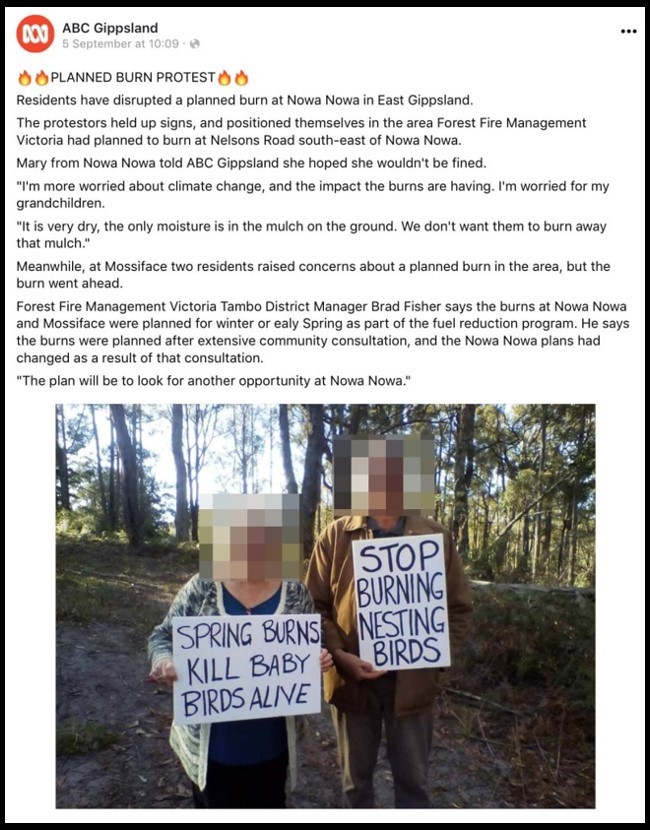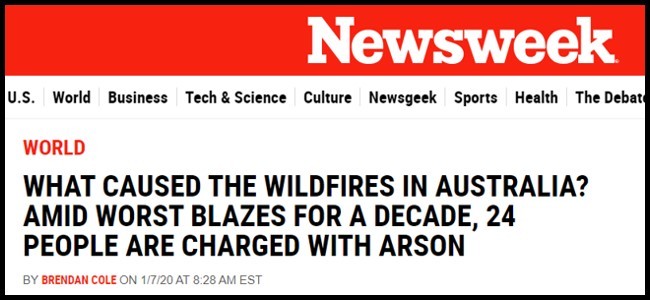
Which do you prefer, controlled fires or uncontrolled fires?
People living in Australia and California ought to be asking themselves that question.
Every year it seems like there’s another disastrous wildfire in the American West. In 2018, nearly 9 million acres were burned in the US alone. Uncontrolled fires often started accidentally by people, rampage and decimate forests.
For most people, forest fire is synonymous with disaster. But there are some kinds of forest fires that actually benefit the environment.
A controlled burn is a wildfire that people set intentionally for a specific purpose. Well-thought out and well-managed controlled burns can be incredibly beneficial for forest management—in part because they can help stop an out-of-control wildfire. . .
Controlled burns are also used to prevent forest fires. Even before human involvement, natural, low-intensity wildfires occurred every few years to burn up fuel, plant debris, and dead trees, making way for young, healthy trees and vegetation to thrive. That new growth in turn supports forest wildlife. Forest managers are now replicating this natural strategy when appropriate, starting manageable, slow-burning fires to make room for new life that will help keep the forest healthy in the long term.
The Nature Conservancy reports the following about Oregon’s forests:
A January 2020 headline from the Sacramento Bee asks an important question:
From the U.S. Forest Service:
So, why aren’t there more controlled burns? The above-cited Sacramento Bee story gives an answer:
Even as fires have ravaged California in recent years — killing dozens and leveling entire neighborhoods — controlled burns haven’t expanded much, researchers said.
To understand what’s stopped prescribed burns, the researchers interviewed legislative aides, state and federal employees, nonprofit leaders, academics and more.
Those interviews revealed an overarching problem, identified by “almost everyone” who was asked: There’s “a risk-averse culture in the shadow of liability laws that place financial and legal responsibility for any prescribed burn that escapes on the burners,” the researchers said.
Landowners are afraid of going bankrupt if a prescribed burn escapes control, the interviewees told researchers. Meanwhile, state and federal workers see little praise for successful controlled burns, and face fears and possible backlash from a risk-averse public, wary of wildfire smoke and mishaps.
The resulting build-up of wildfire fuel is made worse by human misbehavior as a January 2020 report by Newsweek reveals:
As CNN reports, wildfires in Australia could be prevented by using the burning practices that Aboriginal Australians have been using since before white men discovered Australia.
CNN cites Australian historian Bill Gammage as saying, “Where the Aboriginal people are in charge, they’re not having big fires. In the south, where white people are in charge, we are having the problems.”
As it turns out, some people would rather have uncontrolled fires than controlled ones, as the Australian Broadcasting Corporation reported via Facebook in 2019:


Click here to read more about opposition to controlled fires in Australia.
Featured Image from U.S. Bureau of Land Management.
The “Wanted” posters say the following about David: “Wanted: A refugee from planet Melmac masquerading as a human. Loves cats. If seen, contact the Alien Task Force.”



















